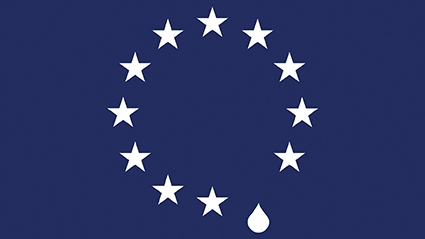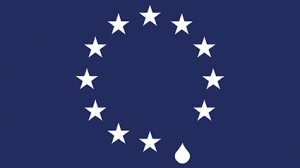Time to Change: Ogden on the End of the Union
Donald Trump's election has set the world alight with speculation over what will happen during the early days of his presidency, and more attention seems to have been placed on his potential foreign policy priorities than anything else. His relations with Russia (projected to be cordial) and China (projected to be antagonistic) have dominated the American headlines, with Europe becoming little more than a footnote.
It is not difficult to see why. The United States has lived in a state of perpetual political tension with Russia since the end of the Second World War, and China's economic power directly threatens that of the US and has been an American concern for almost a decade. Relations with Europe will not have a major impact on America's political or economic scenes (unlike its dealings with the East), and any breakdown in communication or cooperation between the New World and the Old will be far more damaging to Brussels than Washington.
Should the US reduce its support for NATO – or withdraw outright – then it is Europe that will suffer. The EU as an institution stands on the brink as right-wing parties gain momentum, inspired by Brexit and Trump's election.
I understand global apathy with the European Union: Schengen visas are free for Moldovans, whose country is riddled with the kind of corruption that Georgia has not faced in over a decade, while Georgia itself is repeatedly fed false promises and obliged to praise the taste; a trade deal with Canada that would benefit both North America and the entire European continent is prevented from being signed by a small part of Belgium (not even the country as a whole) selfishly looking to its own interests; the British extradition of a terrorist to face justice in Jordan is blocked, while unprecedented levels of migrants and refugees have been brought into the continent without European residents being consulted, with failures to integrate, terrorist incidents and sexual assaults all amongst the fallout.
And yet, in the face of disaster, Europe has a rare chance to improve its lot...it would just mean becoming the aggressive supranational government that anti-EU factions accuse it of being.
A 'hard Brexit' with highly unfavorable terms for the British would likely make any government – and, by association, any voter – think twice before thinking of leaving the Union. Europe must consolidate its own borders and quench its internal turmoil. As the more liberal-minded ask why religious extremists feel the need to question why the radicals feel and act as they do, so too must European governments ask why increasing numbers of its population are voting for more right-wing parties. The answer would likely lead them to significantly reduce the intake of refugees, and invest more in integration programs (should any prove remotely successful) to prevent further incidents of radicalism and violence against European women.
With regards to its 'partner nations' (a term used to describe countries promised membership, but denied entry), Europe could offer immediate outright membership (and all the benefits being a member of the club entails) with a high price. Ukraine, for instance, must finally purge its government of corruption, perhaps even with direct EU assistance. In the case of Georgia, violence against religious, ethnic and sexual minorities must be severely punished, with European-standard education programs to be immediately introduced. In addition, government funding of the Georgian Orthodox church must be severely reduced (just this week I read that Patriarch Ilia, while visiting Moscow, told his Russian counterpart that 'only you [Kiril] and I can heal the rift between our countries'. Terrifying). An increase in military spending throughout the continent (without necessarily resulting in the formation of a European Army) would also soften the blow of a US withdrawal from NATO.
It is unlikely, however, that Europe has either the strength or cohesion to change so radically and rapidly. Bureacracy and an inability to agree have rendered Europe ill-equipped to adapt to an ever-changing world, but unless Brussels manages to adjust, the next two years could spell the end of the Union.
Tim Ogden












